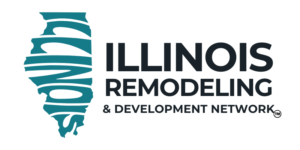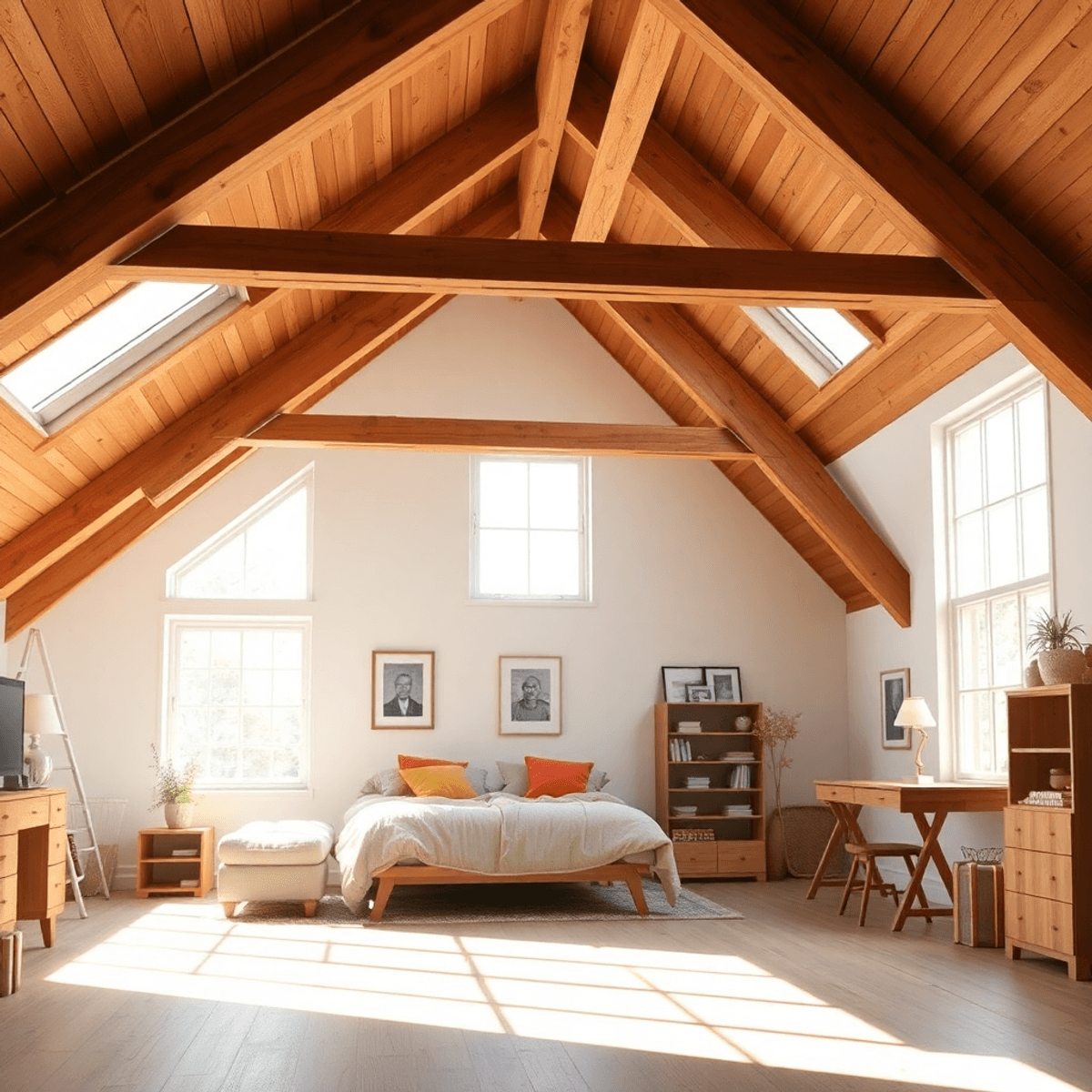Introduction
Securing grants for home improvement and renovation projects in Illinois can significantly ease the financial burden on homeowners. Access to these funds not only facilitates necessary upgrades but also enhances property value and boosts community development. In a state where remodeling and development are continuously evolving, leveraging available grants becomes essential.
This article offers practical guidance on how to secure Illinois grants for home improvement and renovation projects. By exploring various programs, eligibility criteria, and application processes, you gain valuable insights into making your renovation dreams a reality with financial support. Whether you’re aiming for energy-efficient upgrades or critical repairs, understanding these opportunities empowers you to make informed decisions about your home improvement journey.
For instance, when considering transforming your basement into a functional living space, it’s important to understand the potential of this area in terms of added value and livability. Alternatively, if you’re looking into kitchen remodeling, securing the right grant can help cover costs associated with modernizing this essential part of your home.
Moreover, choosing the best materials for your Illinois renovation is crucial. The right materials not only enhance the aesthetic appeal of your home but also ensure durability and cost-efficiency over time. However, selecting suitable materials can be challenging due to the state’s diverse climate conditions and strict building standards.
Understanding Home Improvement Grants in Illinois
Home improvement grants are an essential resource for homeowners who want to improve or renovate their homes without having to pay for the entire cost themselves. These funding options are designed to help people who may not be able to afford such projects on their own.
In Illinois, these grants are especially important because many homeowners are facing economic challenges. By providing financial support, these programs allow residents to maintain and upgrade their homes, making sure they stay safe and livable. This is particularly crucial in communities where old infrastructure may pose health and safety risks.
Eligibility Criteria for Home Improvement Grants
Eligibility for these grants varies across different programs but generally includes several common criteria:
- Income Level: Many programs are designed for low-to-moderate income households.
- Property Location: Some grants target specific areas or communities.
- Homeowner Status: Applicants often need to own and occupy the home needing repairs.
- Specific Needs: Certain grants focus on addressing accessibility issues or health and safety hazards.
Understanding these criteria is crucial for potential applicants to identify which home improvement grants they may qualify for, setting them on a path to successful application and project completion.
Common Uses of Home Improvement Grants
These grants can be used for various home improvement projects. For instance, creating a family-friendly layout or lowering energy costs with practical renovation ideas are popular uses of these funds. It’s also beneficial to explore recent home remodel ideas or popular home remodel guides to gain insights into successful projects that could be funded through these grants.
Major Illinois Grant Programs for Home Improvement
1. Illinois Homeowner Assistance Fund Home Repair Program (HAFHR)
Securing grants for home improvement in Illinois can be crucial, especially for those facing financial difficulties. The Illinois Homeowner Assistance Fund Home Repair Program (HAFHR) is an important resource, offering significant support to homeowners.
Description of the Program
The HAFHR program is specifically designed to help homeowners affected by COVID-19-related financial challenges. Its main goal is to provide necessary funds for essential home repairs, ensuring the safety and livability of homes across Illinois. This program is part of a larger effort to stabilize housing situations and prevent foreclosure due to unexpected economic issues.
Grant Amount and Eligible Repairs
Eligible homeowners can receive grants of up to $60,000. These funds are designated for critical repairs that may include:
- Structural improvements
- Roof replacements
- Plumbing upgrades
- Electrical system repairs
Such comprehensive coverage ensures that homes remain safe and functional, addressing both immediate needs and long-term sustainability.
Eligibility Requirements and Application Process
To qualify for the HAFHR program, you must meet specific criteria:
- You should have previously received HAF housing assistance.
- Ability to certify financial hardship post-January 21, 2020.
Additionally, the program includes a three-year forgivable recapture agreement, which means if you maintain ownership and occupy the home during this period, the grant does not need to be repaid.
Application Process
Navigating the application process involves several steps:
- Gather Documentation: Prepare documents that prove your eligibility such as income statements and proof of hardship.
- Submit Application: Applications can typically be submitted through designated state websites or local offices managing the program.
- Await Approval: Once submitted, your application will undergo review to ensure all criteria are met.
Engaging with this Illinois grant program can significantly reduce the financial burden associated with home repairs, providing peace of mind and stability in uncertain times.
2. Home Repair and Accessibility Program (HRAP)
The Home Repair and Accessibility Program (HRAP) stands out among Illinois grant programs designed for home improvement projects by focusing on health and safety repairs. This initiative primarily aids low-income homeowners, ensuring that their living environments meet essential health standards.
Key features of the HRAP include:
- Health and Safety Repairs: The program places a strong emphasis on critical repairs essential for maintaining a safe living space. This includes addressing issues that might pose immediate health risks to residents.
- Accessibility Improvements: Recognizing the importance of accommodating all residents, HRAP provides funding for accessibility modifications. These improvements are vital for individuals with mobility challenges, facilitating a more inclusive home environment.
- Application Timeline: Prospective applicants should note that the application process is set to open in the summer of 2025, following the selection of grantees. It’s crucial for interested homeowners to prepare ahead, ensuring they meet all necessary criteria and gather required documentation.
This program aligns with broader efforts such as the HAFHR program and COVID-19 assistance initiatives, providing essential support to Illinois residents seeking to enhance their homes while navigating financial constraints.
3. IDHA Home Accessibility Program
The IDHA Home Accessibility Program is designed to assist disabled or senior homeowners in Illinois with necessary home modifications. This initiative is part of the broader effort within Illinois grant programs to address specific needs, such as accessibility improvements.
Target Audience:
Tailored for disabled or senior homeowners who often face unique challenges in maintaining a safe and accessible living environment.
Funding Limits and Types of Modifications:
- Provides up to $25,000 in funding.
- Covers essential modifications like wheelchair ramps, bathroom accessibility upgrades, and other adaptations that enhance mobility and safety within the home.
Application Process Overview:
- Applicants must demonstrate a household income below 80% of the Area Median Income (AMI).
- The process involves submitting proof of income, a description of needed modifications, and any relevant documentation supporting the request.
- Applicants are encouraged to reach out directly to the IDHA for guidance on completing their application and ensuring compliance with program requirements.
By focusing on accessibility modifications, the IDHA program empowers eligible homeowners to maintain independence and improve their quality of life. This focus aligns with other Illinois grant programs like the HAFHR program, extending COVID-19 assistance and reinforcing the importance of secure housing solutions.
IDHA Single Family Rehabilitation Program
The IDHA Single Family Rehabilitation Program offers a unique opportunity for low-income homeowners in Illinois to improve their living conditions through forgivable loans. These loans, which can be forgiven over time, provide a financial cushion for those who might not otherwise afford necessary home renovations.
Key Features:
- Forgivable Loans: Homeowners can receive up to $45,000. By maintaining ownership and residency in the property for a specified period, typically five years, these loans are forgiven, easing the financial burden significantly.
- Eligibility Criteria: To qualify, applicants must meet specific income requirements. The program targets those falling below 80% of the Area Median Income (AMI), ensuring that assistance reaches those most in need.
- Types of Improvements Funded:
- Structural repairs such as roofing or foundation stabilization.
- Energy-efficient modifications like window replacements and insulation improvements.
- Essential updates to plumbing and electrical systems.
This program is an essential part of Illinois grant programs aimed at bolstering home improvement efforts across the state. By providing financial support tailored to income constraints, it enables homeowners to maintain safe and livable homes without the added stress of traditional loan repayments.
5. Community Development Block Grant (CDBG) Housing Rehabilitation Program
The Community Development Block Grant (CDBG) Housing Rehabilitation Program is an important part of Illinois grant programs, specifically designed to support home improvement projects in low-to-moderate income communities. With funding that can go up to $550,000 or $50,000 per household, this program offers significant financial help for housing modernization efforts.
Key Features:
- Funding Scope: Each household may receive up to $50,000 for eligible projects, ensuring comprehensive support for necessary home improvements.
- Target Audience: The program primarily focuses on aiding low-to-moderate income neighborhoods, addressing the needs of communities that often face financial constraints in maintaining and upgrading their homes.
- Eligible Projects: Funding through the CDBG program can be used for various types of home improvement initiatives. These can include essential repairs, modernization efforts, and enhancements that improve the safety and habitability of residences. By focusing on these areas, the program helps elevate living conditions and supports community development.
This initiative ensures that homeowners in financially constrained areas have access to necessary resources for maintaining their properties. Understanding how to secure Illinois grants for home improvement and renovation projects can significantly impact homeowners’ ability to enhance their living environments efficiently.
6. USDA Rural Development Loans and Grants
The USDA Rural Development Loans and Grants program offers vital financial assistance for rural homeowners in Illinois seeking home improvement solutions. This initiative is particularly beneficial for low-income individuals or those aged 62 and older, providing a pathway to enhance living conditions in less urbanized areas.
Financial Assistance Options:
- Loans: Up to $40,000 available to facilitate necessary repairs and improvements.
- Grants: Up to $10,000 can be secured by eligible applicants, easing the financial burden of renovations.
Eligibility Criteria:
Eligibility is primarily determined by:
- Income Level: Applicants must meet specific low-income thresholds defined by the USDA.
- Age Requirement: Grant eligibility specifically targets individuals aged 62 and above.
Specific Uses for Funds:
Funds can be utilized for various purposes aimed at improving the safety and habitability of homes, including:
- Structural repairs
- Energy efficiency upgrades
- Accessibility modifications for elderly or disabled residents
These financial tools are part of broader Illinois grant programs designed to support rural homeowners in maintaining and improving their properties effectively. The USDA program stands out as a substantial resource in this spectrum, ensuring that rural communities have access to necessary improvements without undue financial strain. The importance of such programs is reflected in the comprehensive budget allocated by the USDA, as detailed in their 2025 budget summary.
Local Programs Supporting Home Renovation in Illinois
1. Cook County Programs
In Cook County, several income-based grant options are available to support homeowners seeking to undertake renovation projects. These programs focus on assisting low-to-moderate income households by providing financial aid for essential home repairs and improvements.
City of Chicago Home Repair Grants
These grants are specifically designed for residents within the Chicago area. They offer financial assistance for necessary repairs to ensure homes meet safety standards while enhancing overall living conditions. The program targets low-income families, enabling them to maintain their properties without bearing the full financial burden.
Eligibility Criteria
To qualify for these grants, applicants generally need to demonstrate a certain level of financial need. This is often determined by comparing household income against the Area Median Income (AMI). Additionally, priority may be given to those who have not received similar aid in recent years or have urgent repair needs.
Types of Repairs Covered
- Roofing and Structural Repairs: Addressing leaks, structural weaknesses, and other critical issues that compromise the home’s integrity.
- Plumbing and Electrical Work: Upgrades or repairs essential for safe and efficient home operations.
- Health and Safety Improvements: Enhancements like mold remediation, asbestos removal, or installation of safety rails.
Application Process
Homeowners interested in applying should prepare documentation that supports their eligibility—this typically includes proof of income, property ownership records, and detailed descriptions of the required repairs. The application process may involve submitting forms either online or through local government offices.
These Cook County initiatives play a crucial role in maintaining the quality of housing within the community by alleviating financial strain on eligible residents. By taking advantage of such programs, homeowners can ensure that their living environments are both safe and comfortable.
For those considering renovations beyond immediate repairs, such as a bathroom makeover, these grants can provide the necessary financial support to execute these dreams.
2. DuPage County Initiatives
DuPage County offers a Single Family Home Rehabilitation program designed to assist homeowners with essential repairs and improvements. This initiative provides grants up to $15,000, focusing on enhancing home safety and livability for those who qualify.
Key benefits of the program include:
- Financial Relief: A significant reduction in out-of-pocket expenses for necessary home improvements.
- Safety Enhancements: Targeting critical repairs that enhance the overall safety of the home environment.
- Preservation: Supporting long-term maintenance and preservation of residential properties.
Eligible projects may involve structural repairs, accessibility modifications, or essential system upgrades. Homeowners interested in these local programs for Illinois renovation support should explore this opportunity to leverage available resources effectively.
In addition to structural and accessibility improvements, there is also an emphasis on home health and safety improvement, which can significantly contribute to creating a healthier living environment. Understanding how to secure Illinois grants for home improvement and renovation projects can provide substantial financial relief, particularly when navigating various options across different counties like DuPage.
3. Lake County Support Options
Homeowners in Lake County, Illinois, have access to several financial assistance programs designed to facilitate home improvement and renovation projects. These local initiatives offer both grants and low-interest loans to eligible residents, making it easier to undertake necessary upgrades.
CPAH Homeowner Rehabilitation Program is a prominent option in the area. It provides grants up to $40,000, allowing homeowners to address critical repairs without the burden of repayment. For those needing additional financial support, the program also offers loans at a competitive 3% interest rate.
This combination of grants and affordable loans ensures that a broader spectrum of homeowners can benefit from available resources, particularly those who might not qualify for other forms of aid. By easing the financial pressure associated with home improvements, Lake County’s programs play a pivotal role in enhancing living conditions and maintaining property value across the community.
Additionally, affordable housing options are also available for those who may need them.
4. Kane County Resources
Kane County offers valuable resources for homeowners focusing on critical areas such as lead-based paint removal and zero-interest loan options. These programs are integral to the local programs Illinois renovation support, enabling residents to maintain safe and habitable living conditions.
1. Lead-Based Paint Projects
Addressing lead hazards is crucial for family health, especially in older homes. Kane County’s programs emphasize the removal and mitigation of these risks, ensuring safer environments for all occupants.
2. Zero-Interest Loans
For those needing financial assistance beyond grants, zero-interest loans provide a flexible option to fund necessary home improvements without the burden of high interest rates. This initiative is particularly beneficial for low-income families aiming to improve their housing conditions without incurring substantial debt.
These resources reflect Kane County’s dedication to enhancing residential safety and supporting sustainable home renovations, positioning it as a key player in the broader context of securing Illinois grants for home improvement and renovation projects.
How to Apply for Grants in Illinois
Securing a home improvement grant in Illinois involves understanding the application process and preparing adequately. Here’s a straightforward step-by-step guide to help you:
1. Research Available Programs
Identify which grant programs suit your needs. Consider factors like eligibility criteria, type of repairs covered, and geographical location.
2. Gather Necessary Documentation
Prepare the following documents:
- Proof of ownership (e.g., title deed)
- Income verification (pay stubs, tax returns)
- Proof of residency
- Any documents proving financial hardship or specific needs, such as disability.
3. Complete the Application Form
Obtain and fill out the application form for the desired program. Ensure all sections are completed accurately.
4. Submit Supporting Documents
Along with the application form, attach all required documentation as per the program guidelines.
5. Meet Application Deadlines
Each program has specific deadlines; mark them on your calendar to avoid missing out.
6. Follow Up
After submission, monitor your application status through the respective program’s contact points if available.
Importance of Documentation and Proof of Eligibility
Proper documentation is crucial. It not only proves your eligibility but also speeds up the approval process. Ensure all paperwork is current and accurately reflects your situation to avoid delays.
Tips for a Successful Application
- Read Guidelines Thoroughly: Each program has its unique requirements and stipulations.
- Double-Check Your Application: Ensure there are no errors or omissions.
- Prepare a Compelling Case: Highlight why you need assistance, focusing on urgency and necessity.
Engage local resources like community centers or housing authorities for assistance in understanding and completing applications, enhancing your chances of success in securing grants for home improvement projects in Illinois.
Maximizing Your Grant Benefits
Securing Illinois grants for home improvement and renovation projects is just the beginning. To make the most of these funds, effective planning and budgeting are crucial.
Strategic Planning for Renovations
- Prioritize Critical Repairs: Start by identifying urgent repairs that align with grant requirements. This ensures compliance and maximizes the impact of the funding.
- Set Realistic Goals: Define what you want to achieve with the renovation. Whether it’s improving energy efficiency or enhancing accessibility, having clear objectives helps in executing a focused project plan.
- Consult Professionals: Engage with contractors or architects who have experience in handling grant-funded projects. They can provide valuable insights on cost-effective solutions and compliance with local regulations.
- Consider Specialized Additions: If you’re contemplating a sunroom addition, maximizing natural light in your home can significantly enhance its value and appeal.
Budgeting Tips to Stretch Funds Further
- Break Down Costs: Create a detailed budget that covers all aspects of the project, including materials, labor, permits, and unexpected expenses. This transparency helps in avoiding overspending.
- Seek Multiple Quotes: Obtain estimates from different suppliers and contractors to ensure you’re getting competitive prices. This can lead to significant savings without compromising quality.
- Leverage Additional Resources: Explore other local programs or financial incentives that can supplement your grant. Combining resources can help tackle more extensive renovations.
Using these strategies effectively not only enhances your home’s safety and functionality but also empowers you to utilize every dollar from the Illinois grants efficiently. With careful planning and mindful budgeting, you can transform your living space while maintaining financial prudence.




